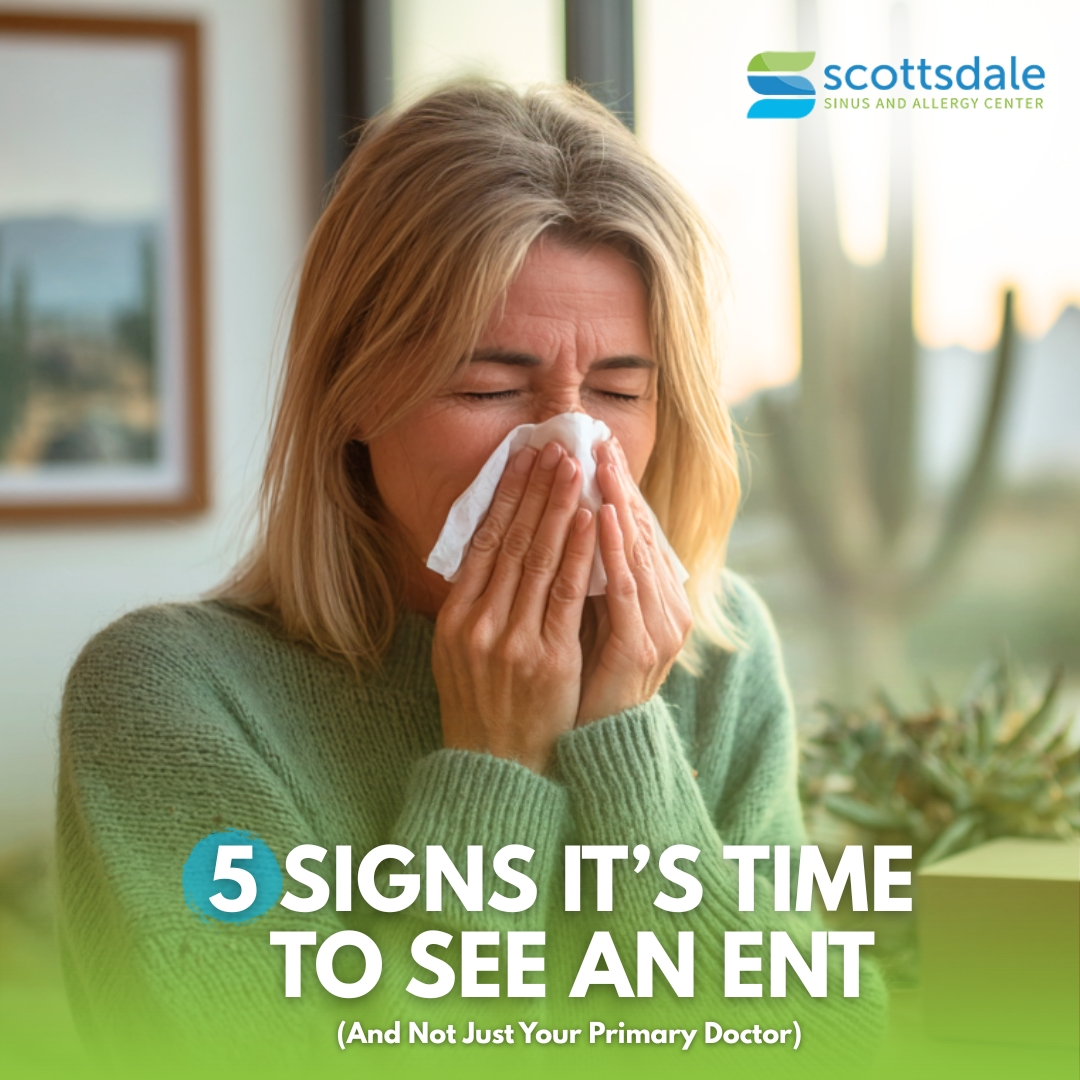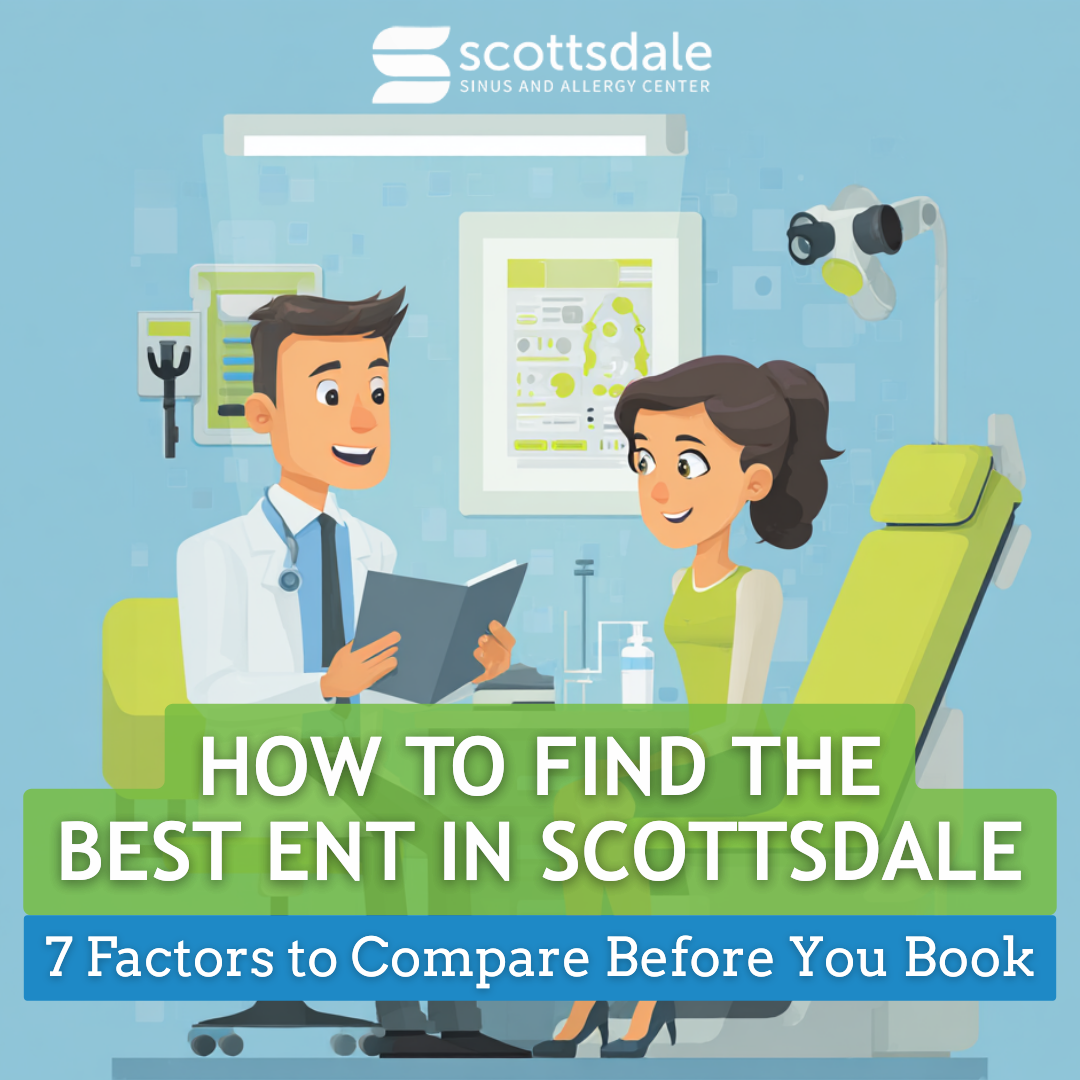.png)
Winter Allergies in Scottsdale: Managing Dust and Mold Indoors
If you find yourself sneezing, coughing, or feeling congested during the cooler months, indoor allergens may be contributing to your symptoms. While many people think of allergies as a spring or summer issue, Scottsdale’s winter season often brings its own set of triggers.
When outdoor temperatures drop, windows stay closed longer and indoor air circulation decreases. As a result, dust mites, mold spores, and pet dander can build up inside, especially in homes where heating systems run often. The dry desert climate can also irritate nasal passages, making it easier for these allergens to cause discomfort.

Common Indoor Allergens in Scottsdale Homes
Even though Scottsdale is known for its dry weather, moisture can still collect in certain parts of the home — especially around bathrooms, kitchens, and basements. This creates a space for mold and mildew to grow, which may contribute to allergy symptoms for some individuals.
Meanwhile, dust mites tend to thrive in warm, enclosed spaces like carpets, bedding, and upholstered furniture. For families in Tempe and surrounding areas, these indoor allergens can make the winter months surprisingly uncomfortable.
If you notice persistent congestion, itchy eyes, or postnasal drip, it may be worth having an allergy evaluation to determine what’s triggering your symptoms and how to manage them effectively.
Simple Steps to Reduce Indoor Allergies
While there’s no single solution that works for everyone, a few preventive measures may help reduce indoor allergy triggers during the winter:
- Change air filters regularly. Replace HVAC filters every 1–3 months. Filters rated for allergy control (HEPA or MERV-rated) may help capture more airborne particles.
- Use a dehumidifier or humidifier as needed. Maintaining balanced humidity may support indoor air quality and reduce comfort-related symptoms for some individuals.
- Clean soft surfaces weekly. Wash bedding in hot water and vacuum carpets with a HEPA filter to remove dust and dander.
- Inspect for mold growth. Check bathrooms, kitchens, and laundry areas for dampness or discoloration. If mold is found, consider consulting a professional for safe removal.
- Consult an HVAC specialist if needed. Some patients may choose to consult an HVAC professional about adding a filtration system to reduce airborne irritants, though results can vary.
These steps may help some people support sinus comfort and reduce irritation during the season.
When to See a Sinus and Allergy Specialist
If your allergy or sinus symptoms last for more than a few weeks or interfere with daily activities, an evaluation with a local ENT or allergy provider may be helpful. Persistent nasal congestion, sinus pressure, or headaches can sometimes point to ongoing inflammation or sensitivity to indoor allergens.
At Scottsdale Sinus and Allergy Center, our team offers diagnostic testing and treatment options designed to help identify triggers and develop an individualized plan. Whether you live in Scottsdale, Tempe, or nearby communities, we’re here to provide support and education to help you manage your symptoms more effectively.
Find Support for Winter Allergies in Scottsdale
Managing indoor allergens doesn’t have to feel overwhelming. With the right home environment and professional guidance, you can take steps toward more comfortable breathing during the winter months.
Schedule a consultation with Scottsdale Sinus and Allergy Center to learn how we can help you explore options for managing winter allergies and supporting indoor air comfort in Scottsdale.
Prepare for Allergies in Spring 2022
The information provided in this article is for informational and educational purposes only and does not constitute medical advice. It is not intended to diagnose, treat, cure, or prevent any disease or medical condition. Always seek the guidance of your physician or other qualified healthcare provider with any questions you may have regarding a medical condition or treatment.
Results may vary: Treatment outcomes and health experiences may differ based on individual medical history, condition severity, and response to care.
Emergency Notice: If you are experiencing a medical emergency, call 911 or seek immediate medical attention.





.png)
.png)
.png)
.png)
.png)
.png)
.png)
.png)
.png)
.png)
.png)
.webp)
.webp)
.webp)

.webp)





.webp)
.jpeg)



%20(1).webp)

.webp)





